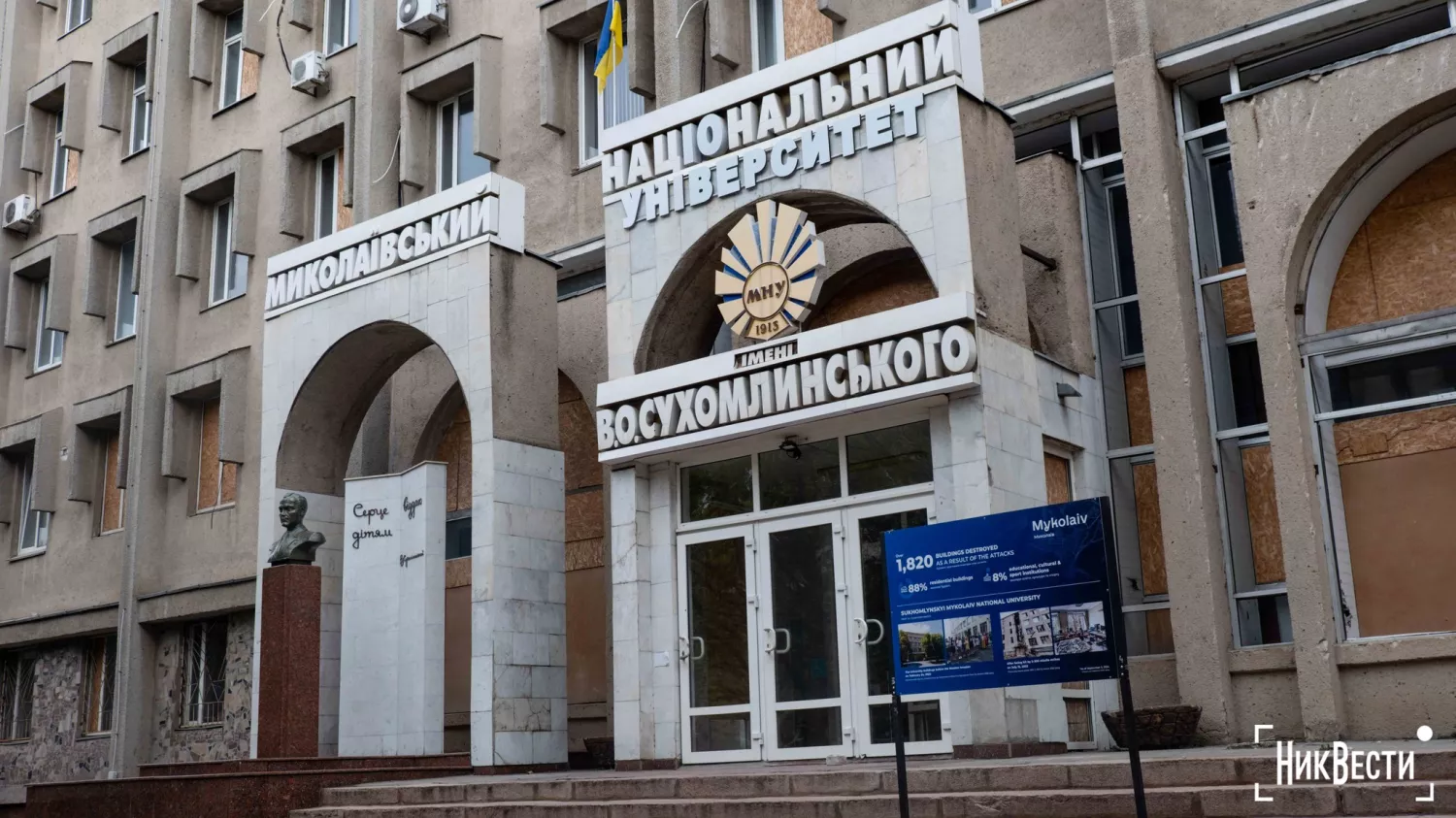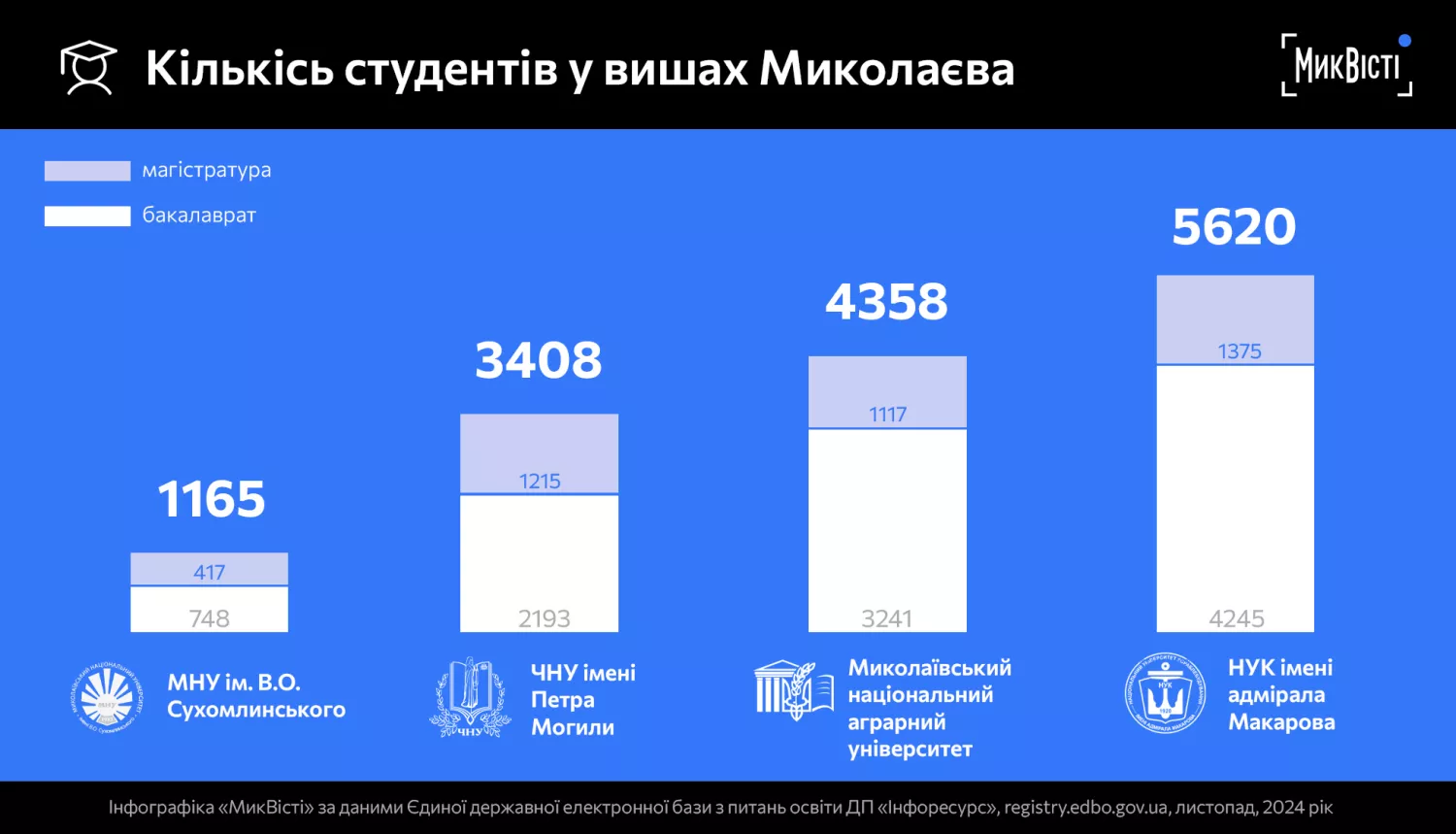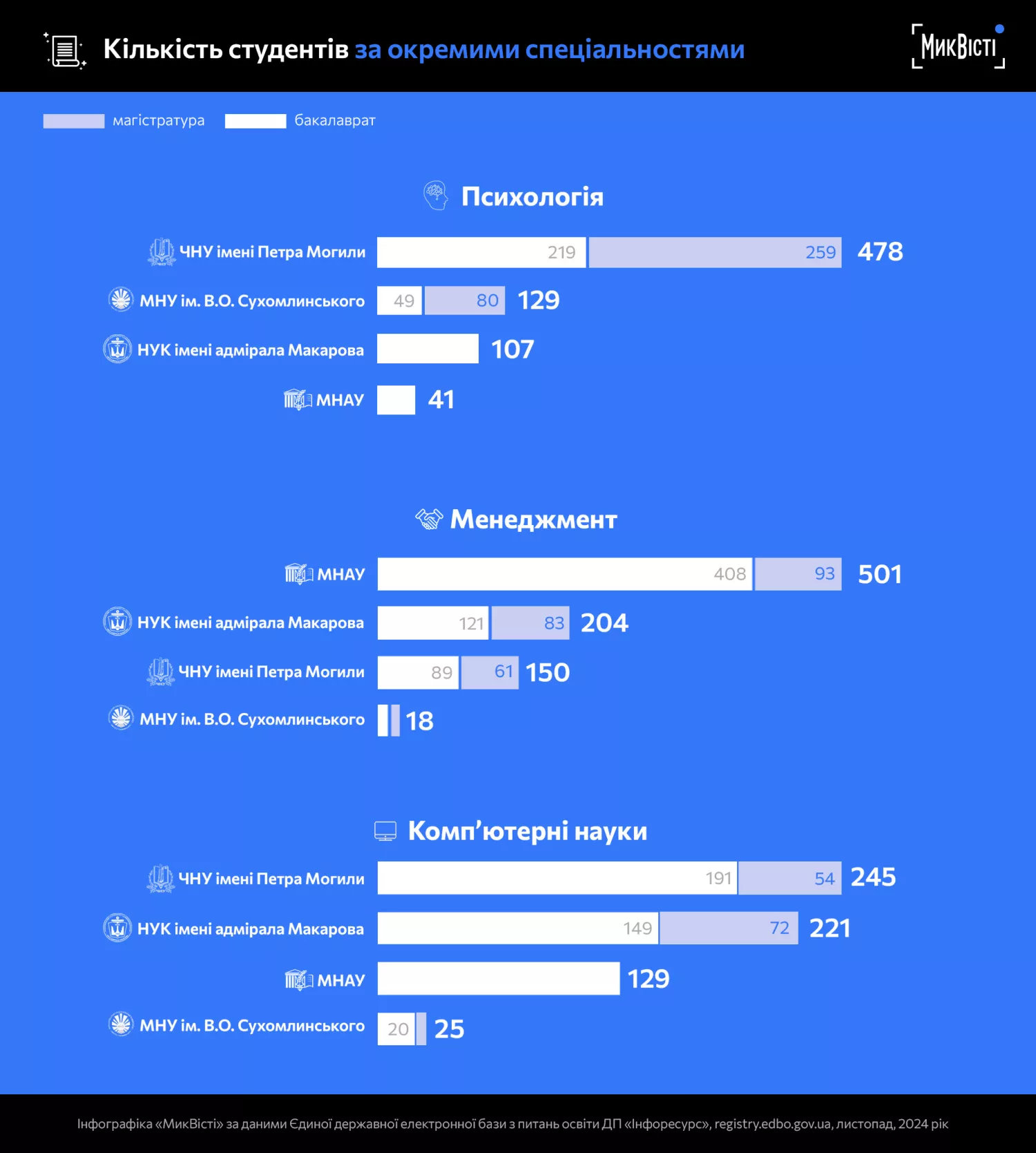More than 14,000 students study at the leading universities of Mykolaiv: where and in which majors — infographic
- Alisa Melik-Adamian
-
•
-
17:05, 02 December, 2024
There are 14,600 undergraduate and graduate students studying in the four leading higher educational institutions of Mykolaiv.
Such data are placed in the Unified State Electronic Database on Education, NikVesti writes.
We have analyzed the key universities where applicants enter. In particular, the Petro Mohyla Black Sea National University, Vasyl Sukhomlynskyi Mykolaiv National University, Admiral Makarov National Shipbuilding University (NSU) and Mykolaiv National Agrarian University.
The largest number of students studying at higher education institutions is 10,527, and 4,124 are studying at the master's level.
Let's consider the example of each of the universities separately. The Pedagogical University, which is currently undergoing reorganization, has the smallest number of students. Now there are 1165 students studying there. The largest number of students study at Admiral Makarov National Technical University.
Let's also consider the number of specialties characteristic of each of the higher education institutions:
Some specialties are characteristic exclusively for certain institutions. For example, according to the data of the electronic database, a record number of students are studying «Power Engineering, Electrical Engineering and Electromechanics» at the Admiral Makarov National Shipbuilding University. There are 1,532 students studying this specialty at bachelor's and master's degrees.
Another popular specialty at NSU is Shipbuilding, which was chosen by 1,138 students.
Agronomy and agroengineering, which are studied by 1,663 students, are popular among agricultural university students.
Another interesting specialty that appeared in Mykolaiv in 2016 is medicine. The only university that prepares future doctors is ChNU named after Peter's Tomb. There are currently 126 students studying at the medical faculty.
Association of Mykolaiv Universities
On January 5, 2024, the website of the Ministry of Education and Science of Ukraine published information about the intention to unite the Mykolaiv National University named after Sukhomlynskyi with the University of Shipbuilding. Subsequently, it was planned to create a multi-disciplinary University of Shipbuilding and Development of the South (UKRoP) from these two institutions.
Commenting on this initiative, the rector of Admiral Makarov National Shipbuilding University Yevhen Trusliakov expressed his dissatisfaction with the proposed name of the UKRoP for the new educational institution. In particular, he noted that the decision does not reflect the opinion and position of students and teachers of the National Shipbuilding University.
Later, the Cabinet of Ministers supported the reorganization of two higher educational institutions in Mykolaiv without giving them the name UKRoP, which was proposed by the Ministry of Education of Ukraine.
The opinion that one of the universities, which suffered from Russian shelling, should be closed or reorganized and joined to a more effective one was previously voiced by the head of the Mykolaiv Regional Military Administration, Vitalii Kim.
At that time, the Mykolaiv Sukhomlynskyi University reacted to the statement of the head of Mykolaiv RMA. Doctor of Pedagogical Sciences Professor Svitlana Yakymenko answered that the educational institution should not be closed. University students also joined the appeal, calling to save the educational institution and start work on the demolition of the rubble of the destroyed part of the university.
In February 2024, 317 master's graduates of the Sukhomlynskyi Mykolaiv National University stated that due to reorganization they could not receive diplomas on completion of education.
After that, the leadership of the Admiral Makarov National Shipbuilding University told the details of the process of unification with the Vasyl Sukhomlynskyi University. Namely: in which buildings the students will study, whether they plan to reduce the teaching staff, as well as about the preservation of faculties and budgetary places.


